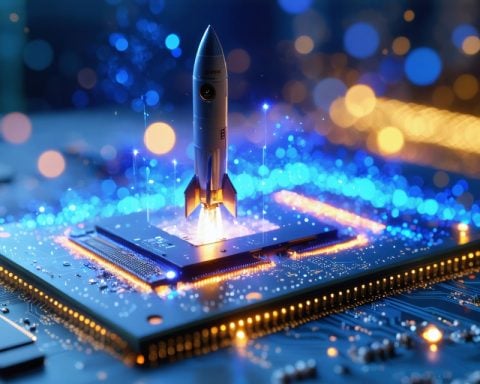Toyota’s mobility branch is making massive waves in the aerospace sector with a substantial investment. The company has committed $44.3 million to Interstellar Technologies (IST), a Japanese rocket manufacturer, as part of its Series F funding round.
This collaboration is built on a strategic partnership that aims to transform the production of rockets, utilizing Toyota’s renowned manufacturing expertise. IST has articulated ambitions to enhance rocket manufacturing, drawing inspiration from automotive practices that emphasize quality, efficiency, and scalability.
In a recent statement, the CEO of Woven by Toyota expressed enthusiasm for joining forces with IST to push the boundaries of rocket production. He emphasized that the partnership will enhance corporate governance and support robust supply chains for efficient rocket assembly.
This announcement coincided with remarks from Toyota Chairman Akio Toyoda at the CES trade show, where he shared visions of mobility extending beyond conventional boundaries, even into space. He highlighted that the future encompasses more than just terrestrial vehicles and hinted at their aspirations in the aerospace industry.
Woven by Toyota’s investment is a result of an ongoing relationship, with both organizations engaging in personnel exchanges since 2020. As Japan aspires to increase its rocket launches to approximately 30 annually by the early 2030s, this investment sets the stage for a revolutionary era in Japan’s space launch capabilities.
Toyota’s $44.3 Million Investment: A Game Changer for Aerospace
Toyota’s Strategic Move into Aerospace
Toyota’s foray into the aerospace sector marks a significant shift as the automotive giant invests $44.3 million in Interstellar Technologies (IST), a Japanese rocket manufacturer, as part of its Series F funding round. This partnership aims to revolutionize rocket manufacturing using Toyota’s renowned production methods known for quality and efficiency.
The Ambitious Vision Behind the Investment
The collaboration between Toyota and IST seeks to merge automotive manufacturing practices with aerospace technology. The CEO of Woven by Toyota emphasized that this partnership is not merely financial but aims to enhance corporate governance and develop strong supply chains crucial for efficient rocket assembly. This strategic alliance seeks to leverage Toyota’s precision engineering to enable IST to scale its manufacturing capabilities significantly.
Trends in the Aerospace Industry
Japan has been making concerted efforts to expand its presence in the aerospace sector, targeting an ambitious goal of approximately 30 rocket launches annually by the early 2030s. This investment aligns with broader industry trends that favor collaborative approaches in aerospace manufacturing, adopting methodologies from other sectors to innovate production processes.
Enhancing Rocket Manufacturing
The integration of automotive manufacturing principles into rocket production could lead to several improvements:
– Quality Assurance: Drawing from Toyota’s total quality management (TQM) practices could enhance reliability in rockets.
– Efficiency: Implementing lean manufacturing techniques may reduce waste and operational costs during rocket assembly.
– Scalability: Adapting automotive supply chain logistics can increase production rates, potentially allowing IST to meet the growing demand for space launches.
What This Means for the Future
As the aerospace sector braces for exponential growth, Toyota’s investment could be a pivotal step in establishing robust manufacturing capabilities in Japan. This alliance signifies a shift towards recognizing aerospace as a key area for technological and exploratory advancements, expanding the concept of mobility to include space travel.
Looking Ahead: Predictions and Innovations
With the aerospace market projected to grow substantially in the coming years, the implications of Toyota’s investment include:
– Increased Launch Capability: A focus on efficient, cost-effective production may allow Japan to become a major player in space launches.
– Enhanced Collaboration: The sharing of expertise between the automotive and aerospace industries could spur innovations, such as hybrid technologies that incorporate the best practices from both fields.
– Sustainability Initiatives: Both sectors are increasingly focusing on environmentally friendly practices, which could lead to new sustainable technologies in rocket design and manufacturing.
Conclusion
In conclusion, Toyota’s strategic investment in IST represents a significant development in the aerospace industry, potentially heralding a new era of rocket manufacturing that leverages automotive expertise. As the aerospace landscape evolves, partnerships like these will likely play a crucial role in shaping the future of space exploration.
For more insights on automotive innovations and industry trends, visit Toyota.


















